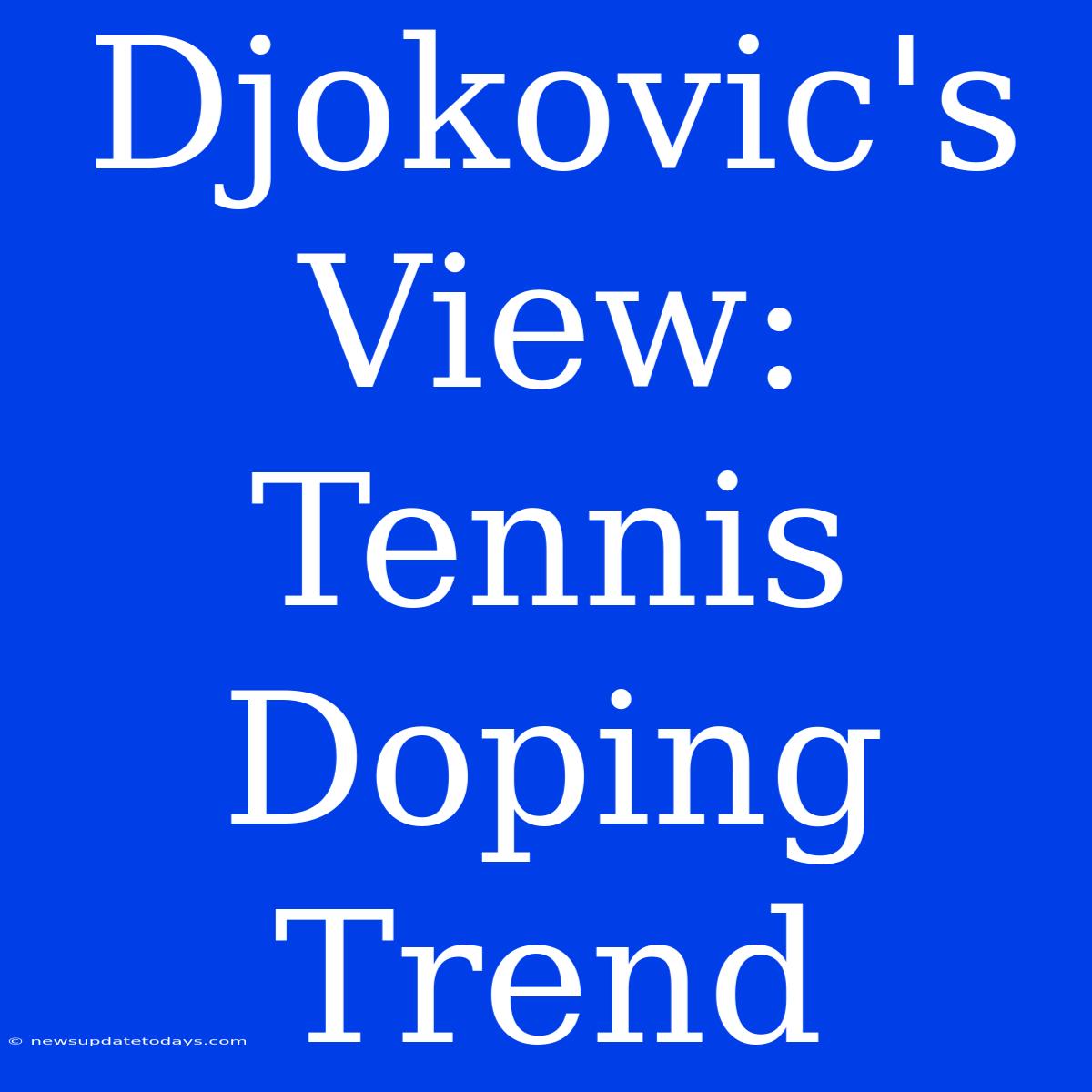Djokovic's View: Is Tennis Facing a Doping Trend? Uncovering the Truth
Novak Djokovic, a name synonymous with tennis excellence, has recently sparked debate with his outspoken views on the potential for doping within the sport. While the issue remains contentious, understanding Djokovic's perspective and examining the evidence is crucial for a comprehensive understanding of the situation. This article delves into Djokovic's claims, exploring the arguments for and against a significant doping problem in tennis.
Djokovic's Concerns: A Call for Greater Transparency
Djokovic hasn't explicitly accused specific players of doping. Instead, his concerns center around a perceived lack of transparency and rigorous testing within the sport. He argues that the current system may not be effectively deterring potential dopers. This lack of transparency, he suggests, leaves room for doubt and undermines the integrity of the game. His calls for stricter regulations and more frequent, unexpected testing are not unfounded, given the prevalence of doping in other high-profile sports.
The Arguments For a Doping Problem in Tennis
While no widespread doping scandal has rocked the tennis world recently, several factors fuel concerns:
- The Pressure to Win: The immense pressure to succeed at the highest levels of professional tennis can tempt athletes to seek performance-enhancing advantages. The lucrative prize money and endorsements create a powerful incentive.
- The Prevalence in Other Sports: The widespread doping problems in sports like cycling and athletics serve as a stark reminder that elite athletes, facing similar pressures, are susceptible to temptation.
- The Difficulty of Detection: Developing sophisticated doping methods makes detection challenging, potentially leading to undetected use of banned substances. The intricate mechanisms of performance enhancement require advanced testing and constant vigilance.
Counterarguments: The Strength of Tennis' Anti-Doping Program
Conversely, those who downplay the risk of widespread doping in tennis point to:
- The ITF's Anti-Doping Program: The International Tennis Federation (ITF) maintains a robust anti-doping program, conducting regular testing and implementing strict sanctions for violations.
- The Public Nature of the Sport: The high visibility of professional tennis makes it more difficult to conceal doping activities compared to sports with less media scrutiny.
- Limited Evidence: While suspicions exist, concrete evidence of widespread doping in tennis remains scarce.
The Need for Continued Vigilance and Transparency
Regardless of the scale of the problem, Djokovic's concerns highlight the critical need for continued vigilance. Maintaining the integrity of professional tennis requires unwavering commitment to a transparent and rigorously enforced anti-doping program. Increased testing frequency, advanced detection methods, and greater transparency in the reporting of test results are essential. Open dialogue, like that initiated by Djokovic, is crucial to address these concerns and uphold the principles of fair play.
Ultimately, the question of whether tennis faces a significant doping trend is complex and requires ongoing monitoring and investigation. However, the debate sparked by Djokovic’s comments serves as a valuable reminder of the importance of maintaining the highest standards of integrity in the sport. Strengthening the anti-doping program and promoting transparency will be crucial in preserving the credibility of tennis and ensuring fair competition for all athletes.

